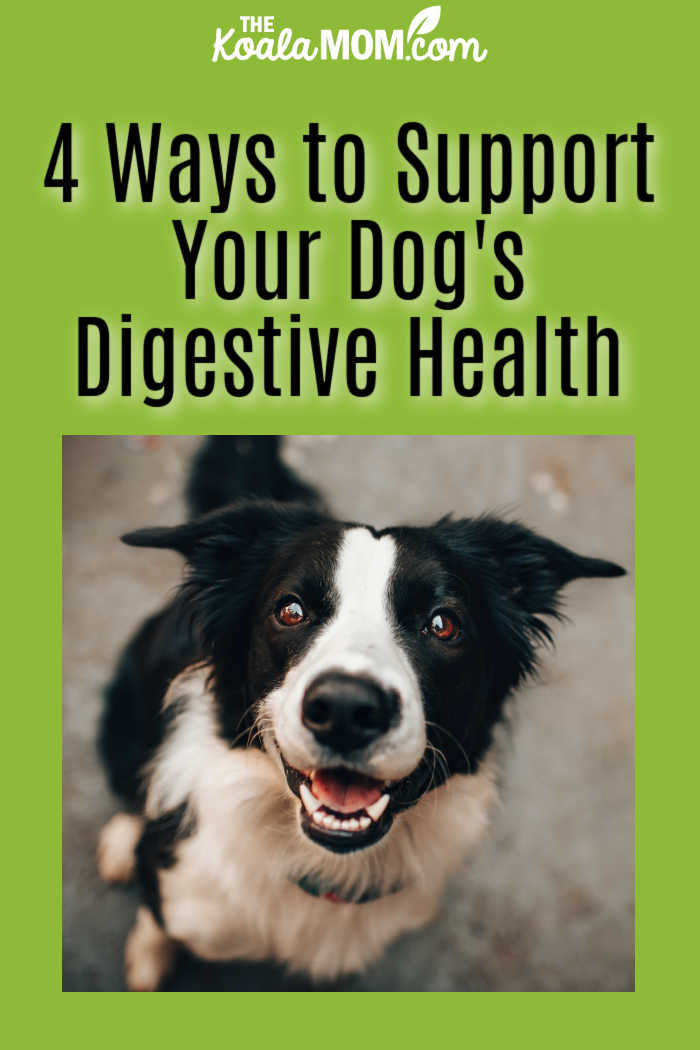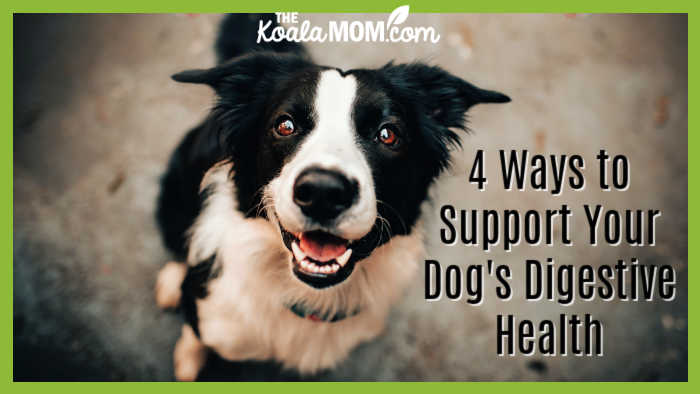While you might think that your dog has got an iron stomach because it will snaffle up anything it finds on the ground, the reality is that their gut biome is just as sensitive as our own. Because of this, you need to take care to support your dog’s digestive health. Here are a few ways to make a big difference in this regard.

This post contains affiliate links; as an Amazon associate, I earn from qualifying purchases.
Feed Your Dog the Right Way
When it comes to supporting your pup’s digestive health, the food you feed them is key. Dogs need a balanced diet that includes proteins, fats, carbohydrates and vitamins and minerals. To ensure they’re getting all the nutrients their body needs to stay healthy, including those that support digestion, look for foods specifically designed for canine digestion or add bone broth to their diet. Consult with your vet about what type of diet would be best suited for your pet.
In addition to providing optimal nutrition through their diet, make sure you stick with regular feeding times. That way they won’t upset their stomachs by eating too much at one time, or suffer from skipping meals altogether! Use dog treats to encourage good behaviour but don’t give your dog too many.
Make sure there’s plenty of fresh water available throughout the day as well. This helps keep them hydrated, while also aiding in proper digestion.
Watch for Allergies and Sensitivities
Just like humans, dogs can suffer from allergies and sensitivities to certain foods. To ensure your animal is getting the nutrition they need while avoiding any potential issues with their digestive system, it’s important to keep a close eye on their diet.
If you notice changes in behavior or physical symptoms, such as vomiting or diarrhea after meals, this could be indicative of a dietary issue that needs further investigation by a vet.
Also, keep watch for other signs, such as excessive scratching (which may point toward skin irritations), redness around the eyes/nose area (which might mean seasonal allergies), and any other conspicuous ailments.
Take note of when these reactions occur, and if possible record what type of food was eaten at each mealtime, so that you can identify which ingredients are causing problems for your pet. This way, appropriate steps can then be taken in order to prevent future flare-ups.
Dog Probiotics: A Natural Way to Balance the Gut
To ensure your pup’s digestive system is functioning optimally, consider supplementing with probiotics. These beneficial bacteria can help maintain a healthy balance of gut flora and promote overall gastrointestinal health in dogs. There are all sorts of products out there, such as Honest Paws’ Pre+ Probiotic range, which can make a positive difference in the right circumstances.
Another advantage of probiotics is that they may even aid in helping to improve nutrient absorption so that your pet gets more out of their food. This can be especially helpful for those who are on restricted diets due to sensitivities or allergies, as it ensures they’re getting all the vitamins and minerals their body needs from other sources too. (And don’t forget to boost your own energy so you can keep up with your happier, healthier dog!)

Add Fiber to Your Pet’s Diet
Last of all, fiber is worth considering as a nutritional addition to your dog’s diet. It helps keep the colon and intestines functioning properly, allowing food to move more quickly through the digestive system. This means less time for bacteria or toxins to build up and cause issues. Not only does it help with digestion, but it also has other benefits, such as promoting regularity, which means you won’t have to deal with any accidents on the carpet!
When adding fibers into their meals, make sure you go slow at first. Introducing too much all at once could lead to stomach upset, or worse still blockages. Once again, get in touch with a vet if there’s any doubt.

No Responses Yet